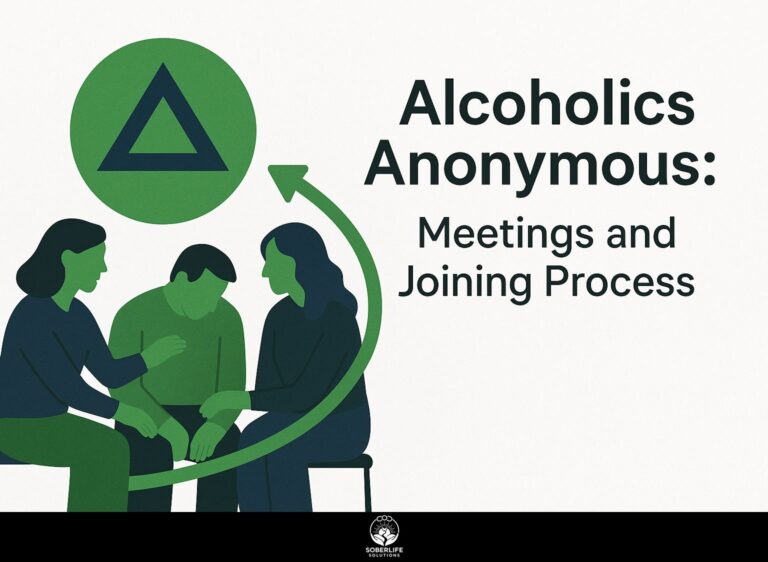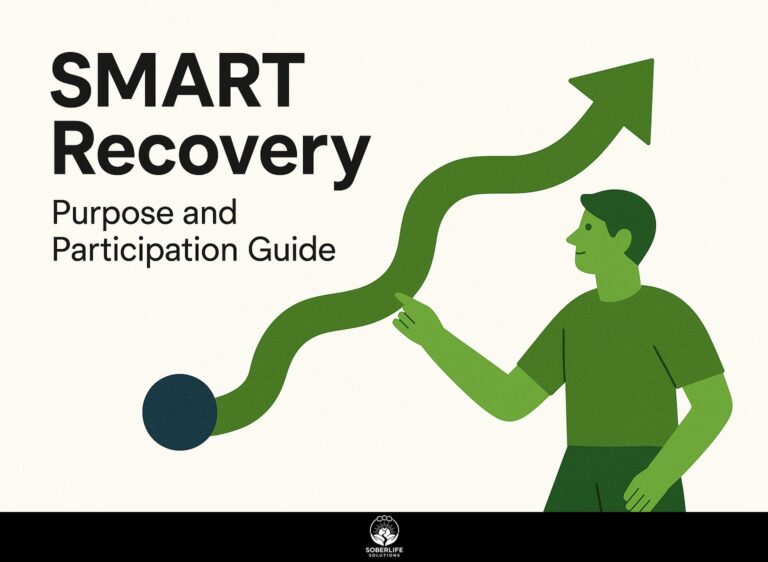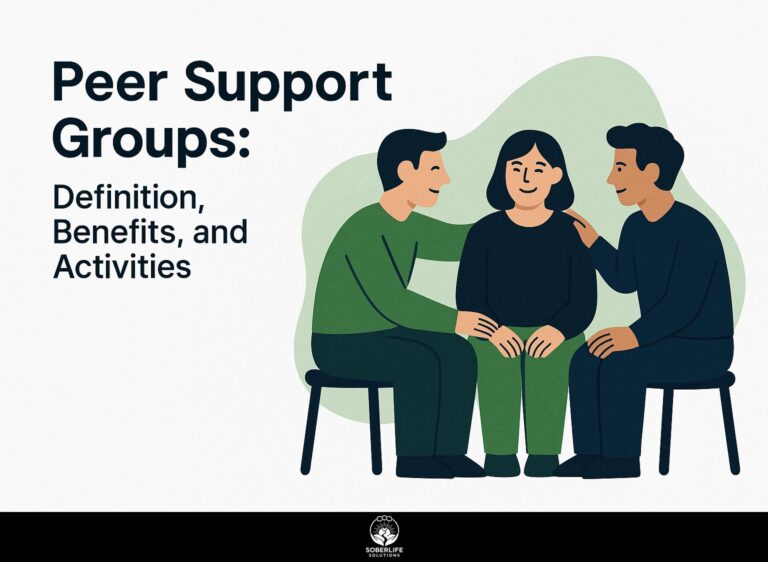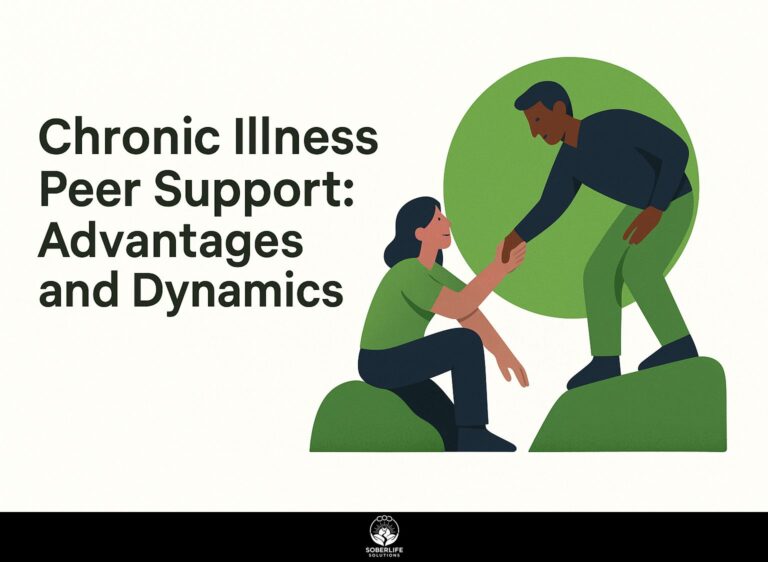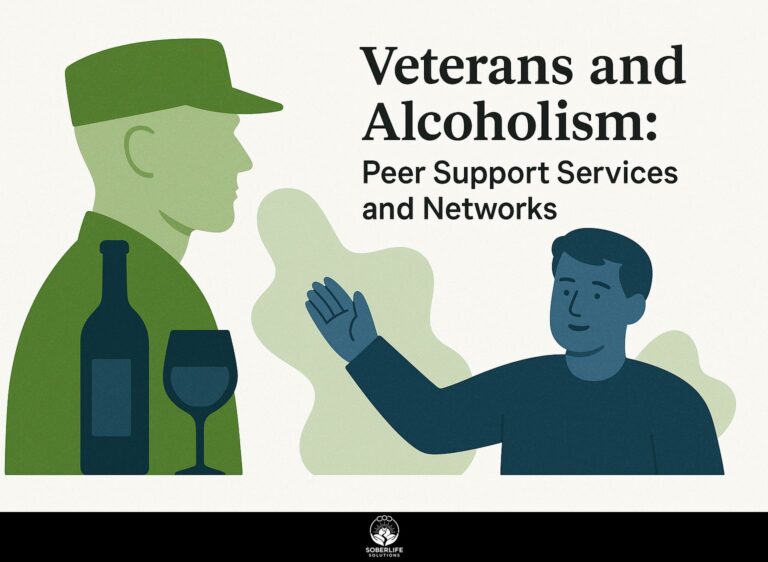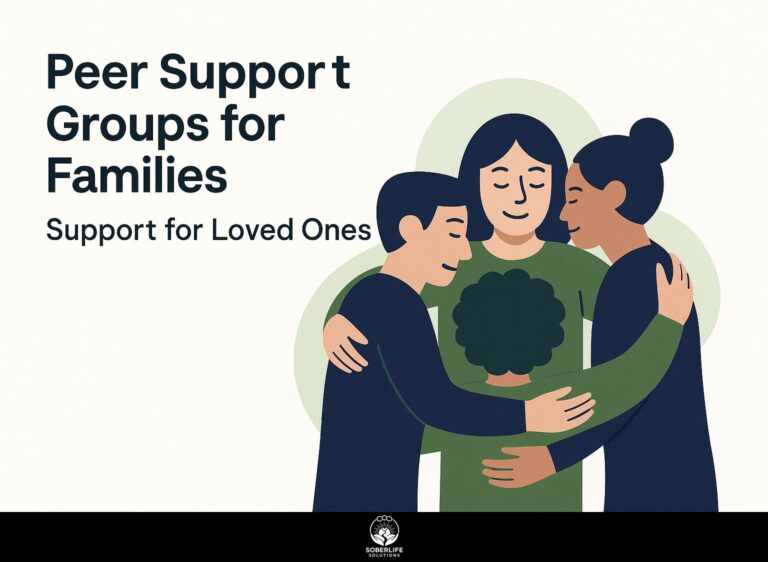Peer Support Roles: Specialists, Advocates, Providers
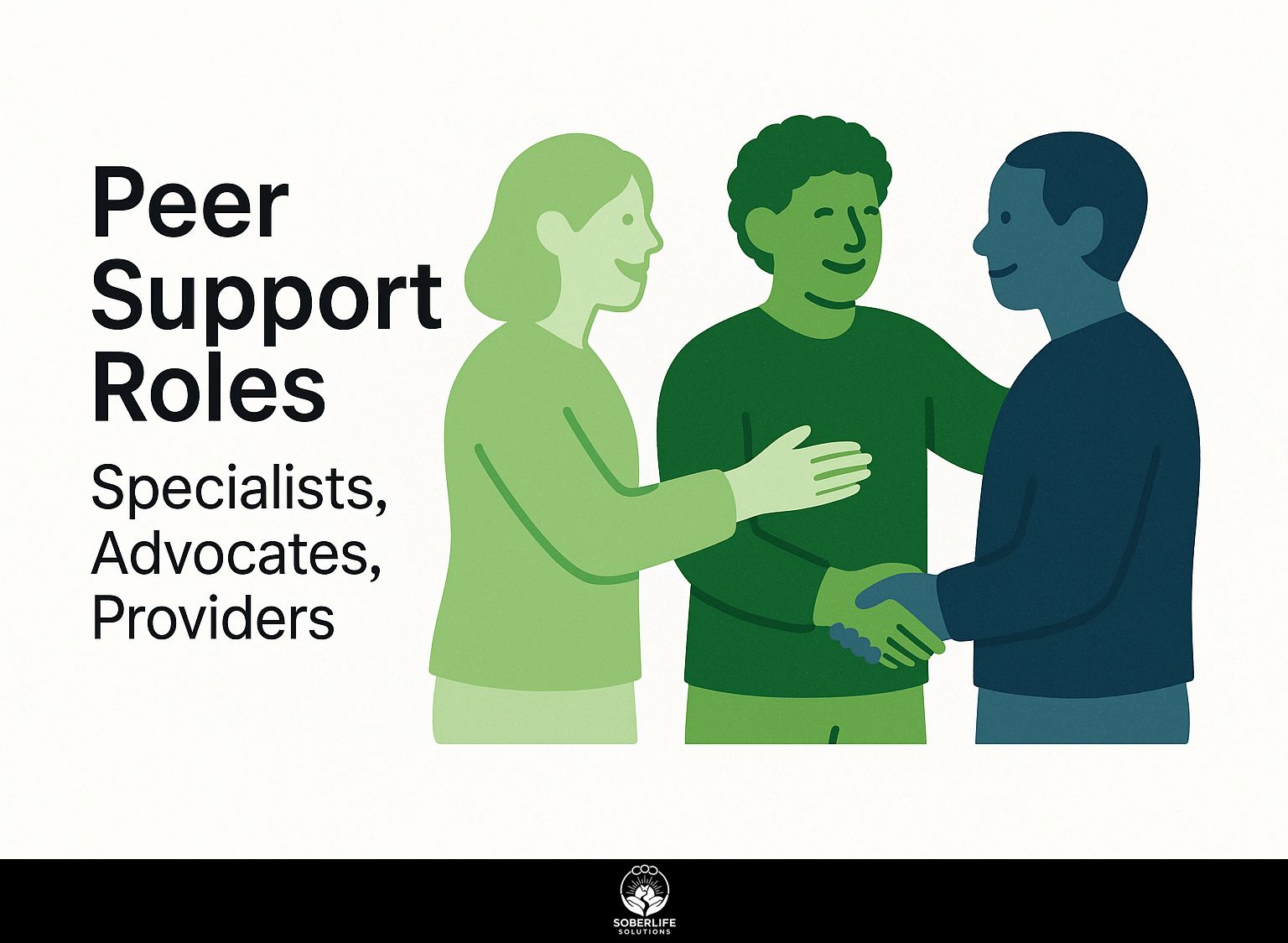
In mental health, peer support is important for building strength and empathy through shared experiences. As support groups continue to grow in importance, the roles of peer advocates, specialists, and providers have become indispensable. This article looks at the different kinds of peer support roles, focusing on what they each add and the important skills they require. Learn how these motivated people make a difference in lives and create better communities with care and relationships.
Key Takeaways:
Definition and Importance
Peer support means getting emotional and practical help from people who have also faced mental health issues.
This support can manifest in various forms, such as group meetings, one-on-one conversations, or online forums. Engaging in peer support helps individuals feel understood and less isolated, often leading to improved mental health outcomes.
For instance, research by SAMHSA indicated that 70% of those participating in peer support programs report feeling better about their mental well-being. To facilitate this process, platforms like 7 Cups offer free emotional support, while local community centers often host in-person peer support groups, enhancing accessibility. A major review published by UCL further supports these findings, demonstrating that peer support significantly improves mental health.
Historical Context
The evolution of peer support dates back to the 1970s, growing significantly with the rise of community mental health approaches.
Organizations like the National Alliance on Mental Illness (NAMI) led the effort, pushing for programs that link people who have been through similar experiences. Their projects created spaces where people could discuss their problems and ways to manage them, which helped build strength and recovery.
For example, NAMI’s Family-to-Family program teaches family members of people with mental illness, providing them with practical skills and knowledge.
Local peer support groups have begun, helping people in the area connect with customized approaches that have been important in reducing stigma and aiding long-term recovery in communities.
Types of Peer Support Roles
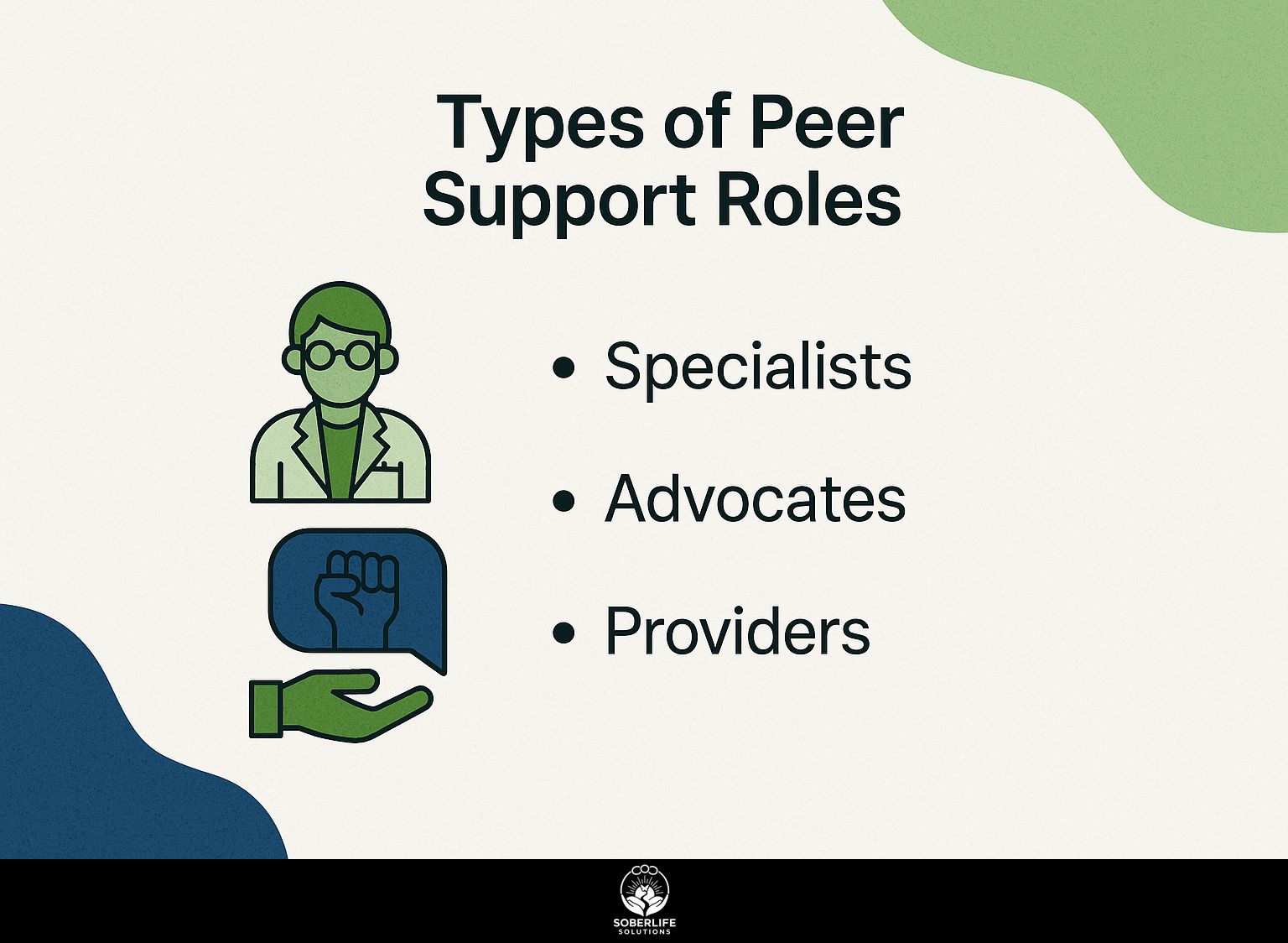
Peer support includes different roles, each designed to provide specific viewpoints and help based on individual experiences. For those interested in understanding the diverse environments where these roles are applied, like hospitals and schools, our guide on peer support settings offers detailed insights.
Specialists
Peer support specialists receive specific training and certification to offer focused emotional and practical help.
These specialists are trained in essential skills such as active listening, empathy, and crisis intervention.
For example, the National Certification for Peer Supporters provides a complete course on trauma-informed care, allowing peers to share their experiences while keeping information private.
Programs like Mental Health First Aid provide practical techniques for recognizing and responding to mental health crises.
By building these skills, peer support specialists can guide others through challenges and promote recovery-focused methods in their communities. The Department of Human Services offers comprehensive peer support training, emphasizing the importance of continued education and skill development in this field.
Advocates
Peer advocates help make sure that people who have experienced something directly are listened to, often in community groups and public areas.
These supporters play an important role in helping people make sense of and use complicated programs like Medicaid by providing individualized help. They can help individuals understand eligibility requirements, complete applications, and connect with appropriate resources.
For example, a peer advocate may organize workshops focused on interpreting Medicaid policies, alleviating confusion surrounding services. Tools like advocacy kits and resource lists become more helpful when they provide correct information to those who need it.
Having a peer representative helps build a community and encourages people to support themselves.
Providers
Peer providers integrate their experiences into therapeutic settings, enhancing the effectiveness of traditional mental health services.
For example, community mental health centers often include peer support groups run by trained individuals with similar experiences. These groups help people feel connected and understood, letting clients talk about their experiences in a safe place.
Tools like the Peer Support Toolkit can help organizations develop structured programs that outline training, supervision, and evaluation. Successful centers, such as the Pathways to Recovery in San Francisco, have reported improved client engagement and lower dropout rates, demonstrating the tangible benefits of this integrated approach to care.
Skills and Qualifications
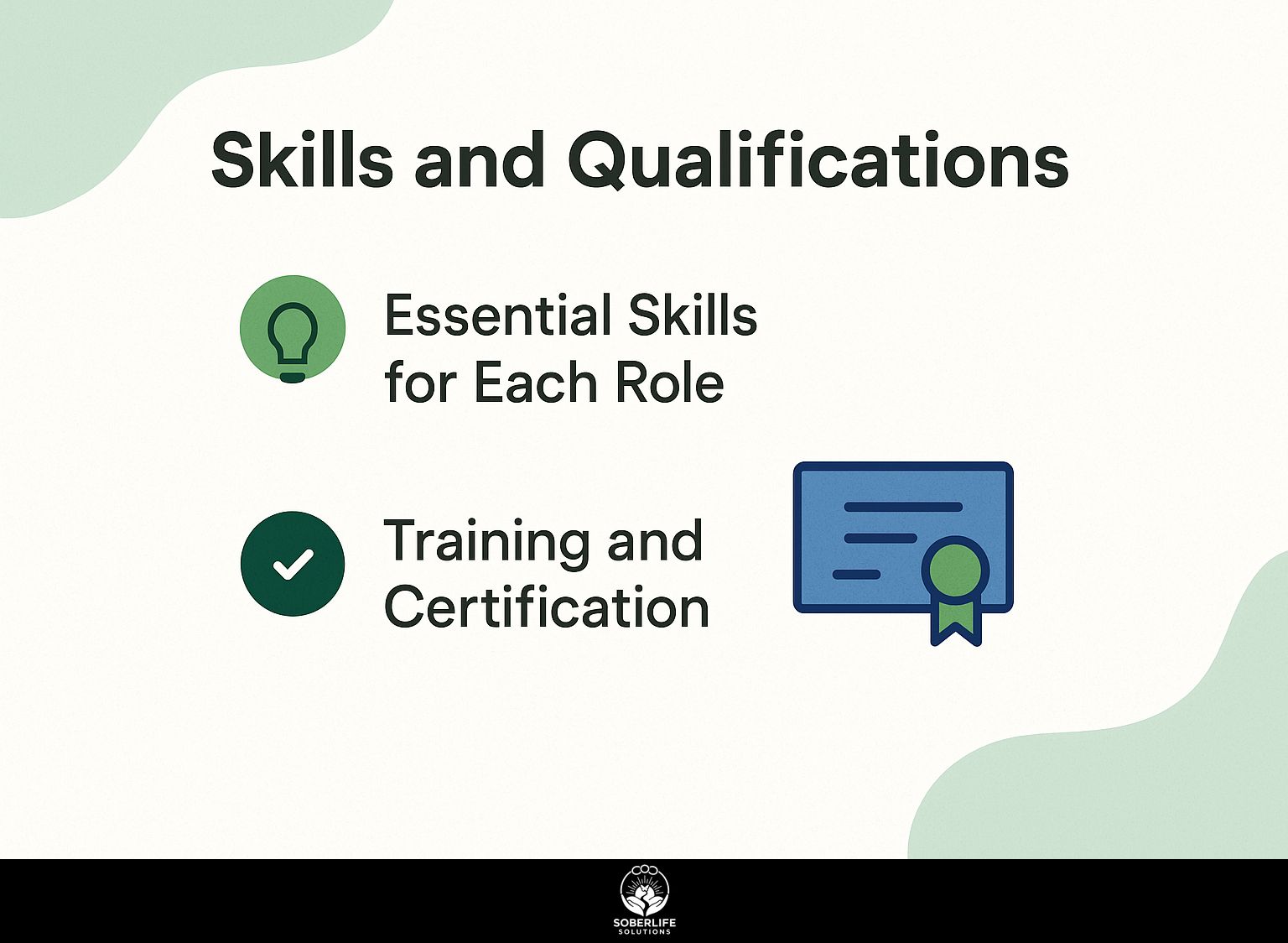
Success in peer support roles requires a combination of personal experience and particular skills to help others well. Worth exploring: how peer support settings like hospitals and schools utilize these skills effectively.
Essential Skills for Each Role
Key skills for peer specialists include active listening, crisis management, and knowledge of mental health resources.
Listening carefully allows peer specialists to establish trust, helping people feel heard and acknowledged.
For instance, using paraphrasing techniques during conversations can deepen engagement. Knowing how to manage emergencies is important for staying in control. Methods like staying relaxed and talking quietly can stop arguments from getting worse.
Knowing about mental health resources, such as local support groups or hotlines, helps specialists guide people well.
Regular practice in these areas improves real-world use and increases confidence in these important interactions.
Training and Certification
Training for peer support roles often includes certification programs that improve trustworthiness and effectiveness in providing services.
Prominent courses include the OnTrackNY Peer Specialist Training, which covers key topics like trauma-informed care and self-advocacy.
SAMHSA also provides a Peer Support Certification that centers on creating connections and helping techniques. The certification aligns with standards set by authoritative bodies such as the National Model Standards for Peer Support Certification.
Both programs typically last around 40 hours, combining online modules with hands-on practice. By enrolling in these courses, you will learn more and connect with experts in the field, which will help you become a better peer supporter.
Benefits of Peer Support
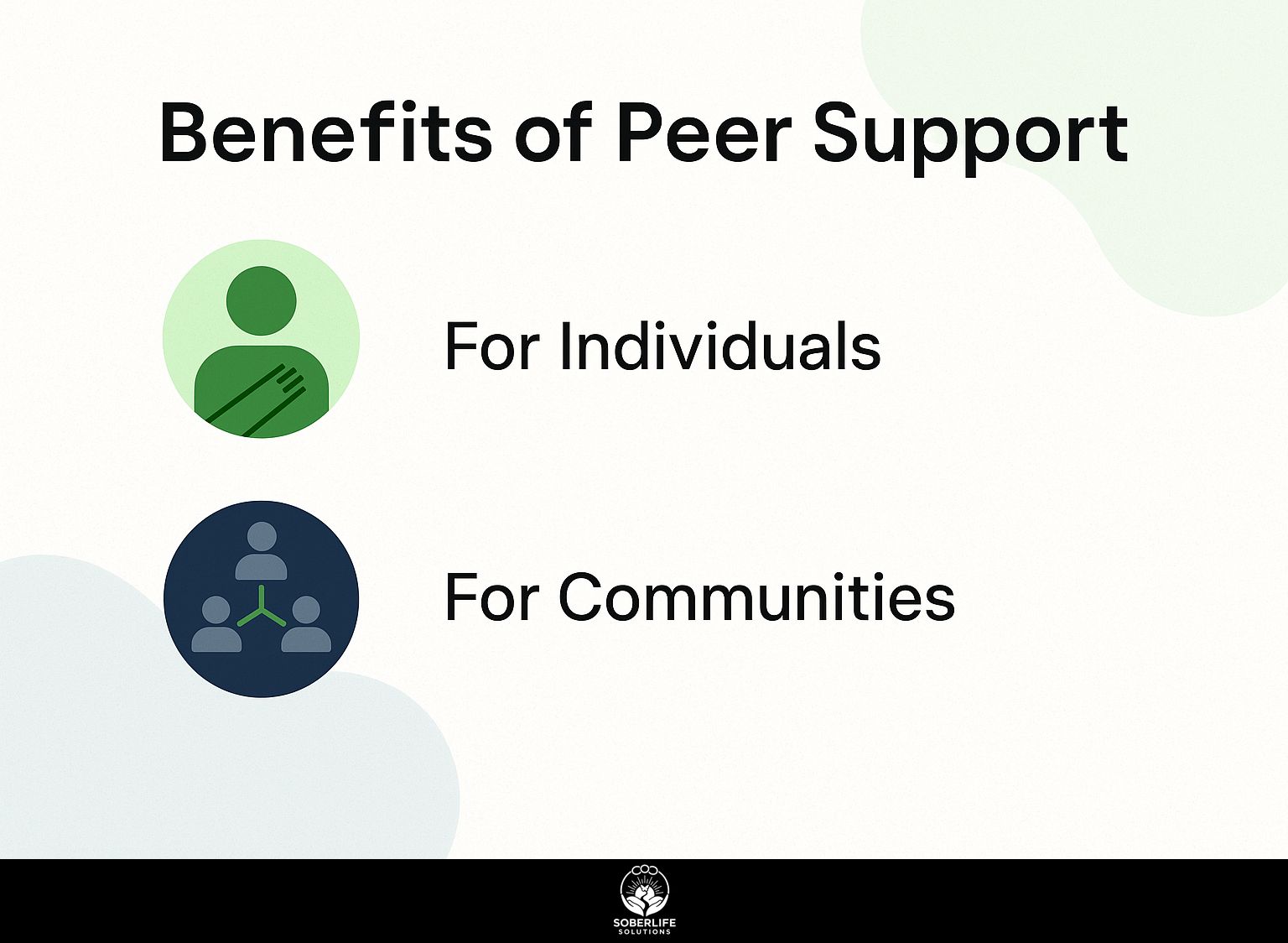
The advantages of peer support go beyond personal recovery, helping whole communities by sharing experiences and resources. For an extensive analysis of this trend, our comprehensive study of peer support settings in hospitals, schools, and community centers examines the various environments where peer support can be most effective.
For Individuals
People involved in peer support often become more emotionally strong and see better mental health results.
Studies show that participants in peer support programs have up to a 30% reduced rate of hospitalization for mental health issues.
Personal stories highlight these benefits; for instance, one person mentioned that talking with others dealing with similar problems made them feel understood and less alone.
Tools like support groups or online platforms (e.g., 7 Cups, Supportiv) help people connect with each other, leading to shared ways to handle problems and creating a sense of community, which greatly improves emotional health.
For Communities
Communities gain from peer support systems by creating spaces where people can understand each other and work together on mental health projects.
One effective approach is forming peer-led support groups where individuals share experiences and coping strategies in safe environments. For instance, local initiatives like ‘Mental Health Allies’ in various cities connect trained peer supporters with those facing mental health challenges.
They often use online platforms like Zoom for accessibility, allowing broader participation. Workshops and community events can raise awareness and normalize conversations around mental health, as seen in ‘Talk It Out’ festivals, which combine education with personal storytelling, significantly reducing stigma and improving access to necessary resources.
Challenges in Peer Support
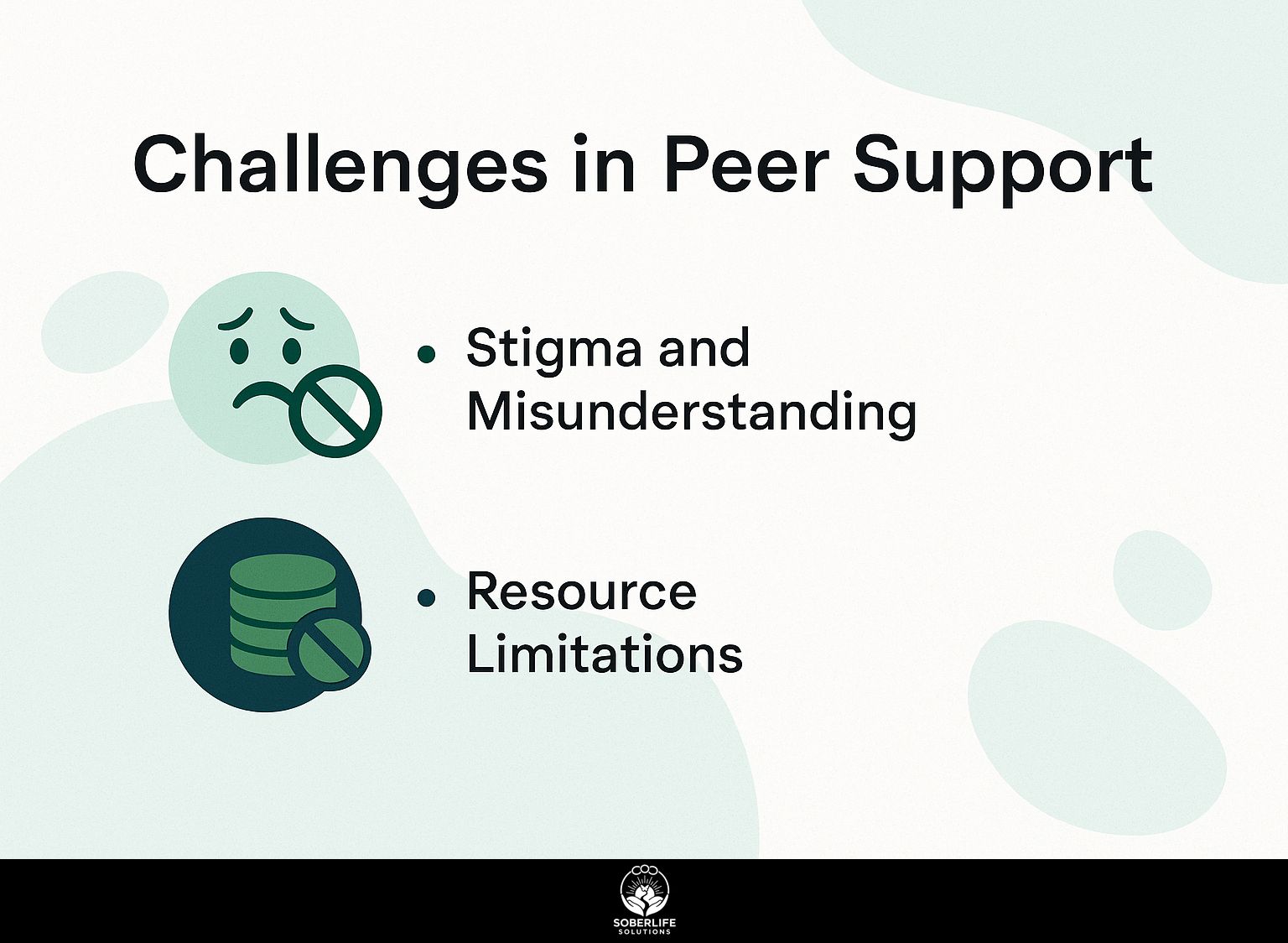
Although peer support has benefits, it also has some problems that can reduce how well it works and how easy it is for people to use. For instance, understanding the role and impact of peer support in detox centers can provide valuable insights into these challenges (as explored in our discussion on peer support in detox centers).
Stigma and Misunderstanding
Prejudice about mental illness often causes confusion about how effective and trustworthy peer support services are.
Studies indicate that peer support can greatly improve recovery results by offering shared experiences and creating a feeling of belonging.
For instance, a study published in the Journal of Mental Health found that individuals engaged in peer support groups reported a 30% decrease in depressive symptoms after six months.
Teaching people is important to fight stigma. Workshops that bring together mental health professionals and peer supporters can clarify how peers help in recovery.
Using social media campaigns to share success stories can help make these services more accepted.
Resource Limitations
Limited funding and resources pose significant barriers to the expansion and sustainability of peer support initiatives.
To handle these challenges, organizations can look into particular strategies.
- Pursuing grants from both government and private foundations can provide critical financial support. For example, the Substance Abuse and Mental Health Services Administration (SAMHSA) offers various grants aimed at strengthening mental health services.
- Working together with local health groups can improve the sharing of resources, enabling wider reach and provision of services.
- Using volunteer groups can help with staffing shortages, cutting costs significantly while keeping the quality of services high.
Future of Peer Support Roles
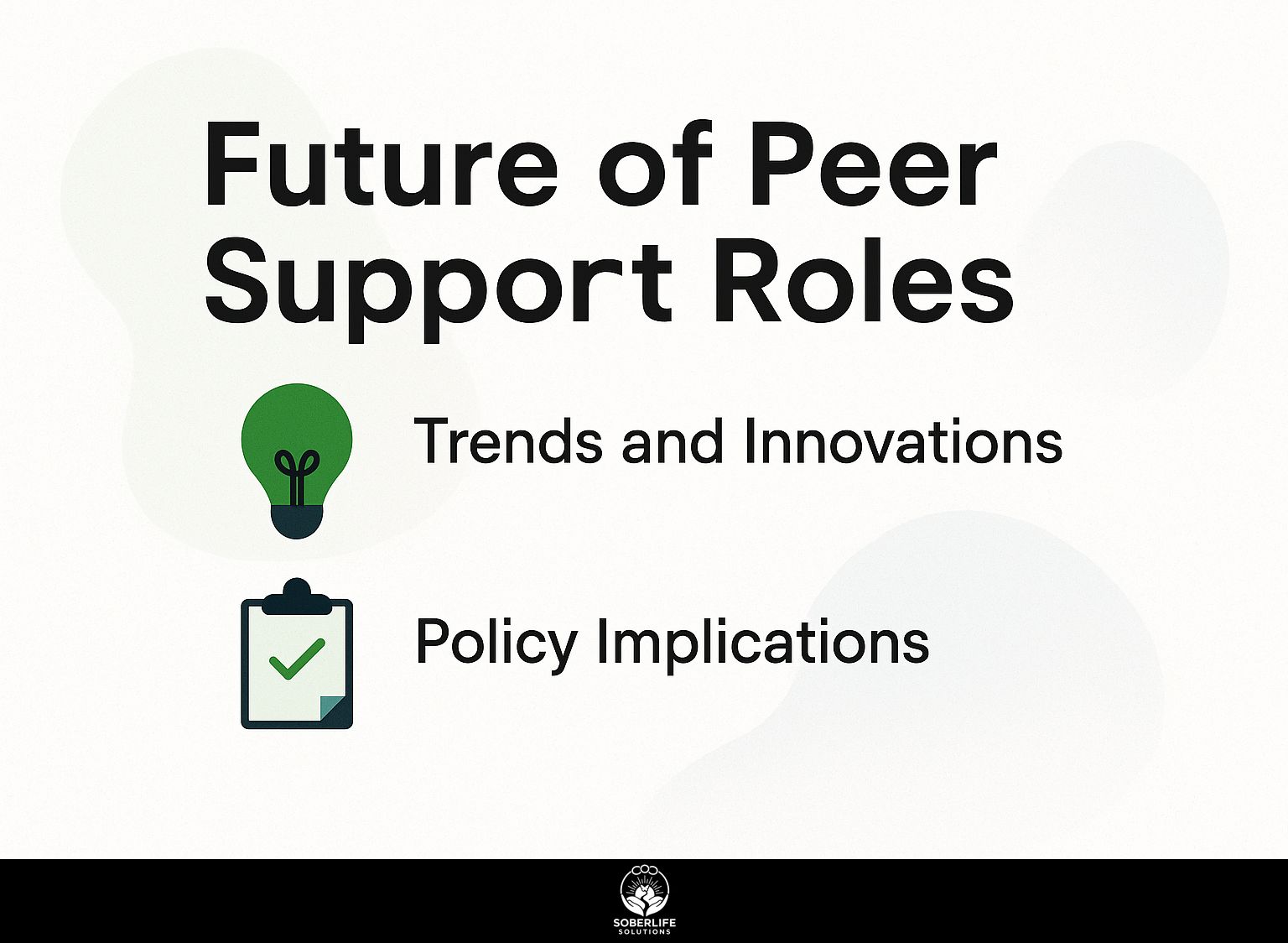
The direction of peer support is influenced by changing trends and the need for policies that appreciate its importance in mental health care. Given the rise of technology, virtual recovery groups are trending, shaping how support is accessed and delivered in modern times.
Trends and Innovations
Emerging trends in peer support include the integration of digital tools, enhancing accessibility and reach among diverse populations.
Online support groups, hosted on platforms like Zoom or Discord, are extremely helpful for people looking to connect with others.
For instance, the 7 Cups app offers a unique model, providing trained listeners and facilitating anonymous chat support. A case study of a 2022 peer group showed 80% participant satisfaction, highlighting how participants felt less isolated.
The app includes forums for ongoing discussions, allowing for continuous support beyond scheduled meetings. This mix of technology and community involvement offers a new way to improve mental health and well-being.
Policy Implications
Supportive policies are necessary to start and maintain peer support programs in community mental health systems.
Key legislative changes can greatly strengthen these programs. For example, expanding Medicaid has helped more people get mental health services, which is essential for including peer support.
Initiatives like the 988 Crisis Line provide immediate crisis intervention, facilitating smoother transitions to peer support resources. To promote these changes, stakeholders can advocate for local funding allocations and connect with organizations that champion mental health legislation.
Talking with policymakers in community meetings can share stories of people who benefit from peer support, creating a better support network.
Frequently Asked Questions
What is a Peer Support Specialist and what is their role?
A Peer Support Specialist is someone who has lived experience with a mental health condition and has received specialized training to provide support and guidance to others with similar experiences. Their job is to explain, show care, and provide practical help to those looking for mental health support.
What is the role of a Peer Support Advocate?
A Peer Support Advocate is someone who uses their personal experience and knowledge to support and advocate for others with mental health conditions. They work to raise awareness, eliminate stigma, and promote access to resources and services for those in need.
What are the responsibilities of a Peer Support Provider?
A Peer Support Provider is a person who gives peer-to-peer help and acts as another resource for people looking for mental health assistance. They provide one-on-one support, facilitate group discussions, and connect individuals with community resources.
How does a Peer Support Specialist differ from a mental health professional?
Although both a Peer Support Specialist and a mental health professional might have similar training, a Peer Support Specialist provides help based on their own personal experiences. They understand the difficulties and problems faced by people looking for help, in ways that regular mental health experts might not.
What are some key qualities of an effective Peer Support Advocate?
An effective Peer Support Advocate should possess empathy, active listening skills, non-judgmental attitude, and a desire to help others. They should also have strong communication skills, be knowledgeable about mental health resources, and be able to set boundaries while providing support.
What are some common misconceptions about Peer Support Providers?
Some common misunderstandings about Peer Support Providers are that they lack the qualifications to offer help, they are not trained experts, and they might not have the skills needed to help others. Peer Support Providers get specific training and have personal experience that helps them support others with mental health issues.

